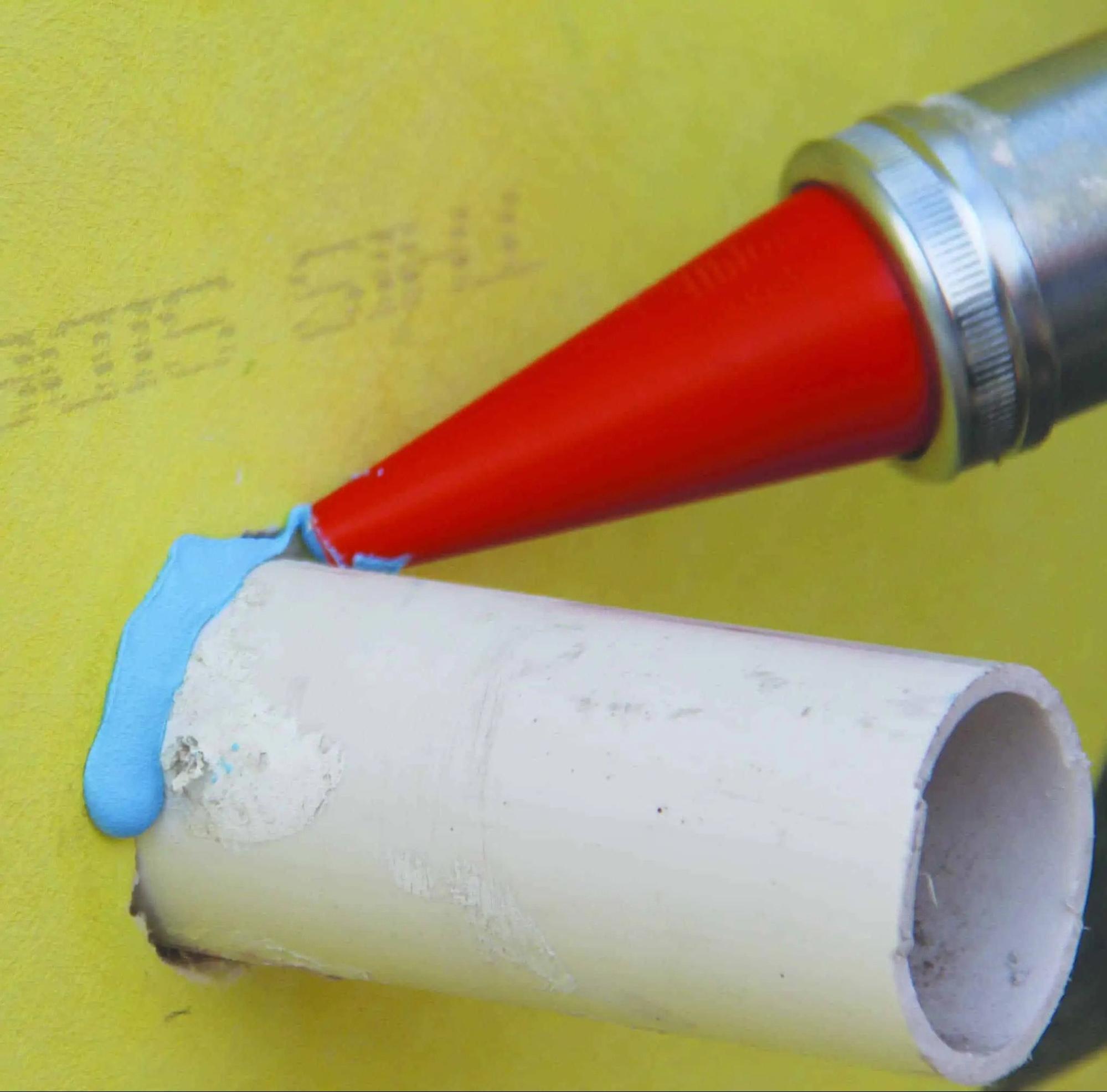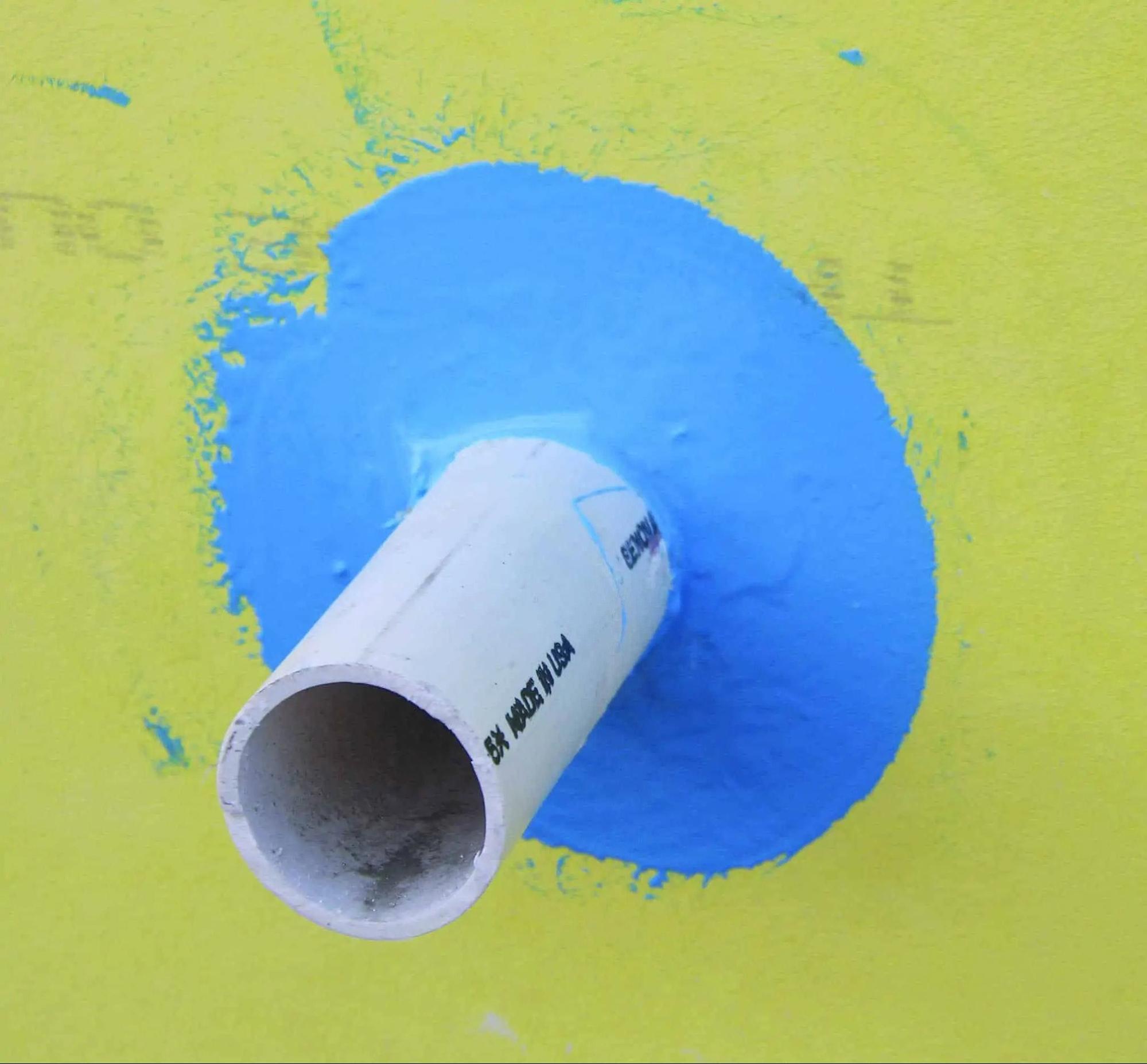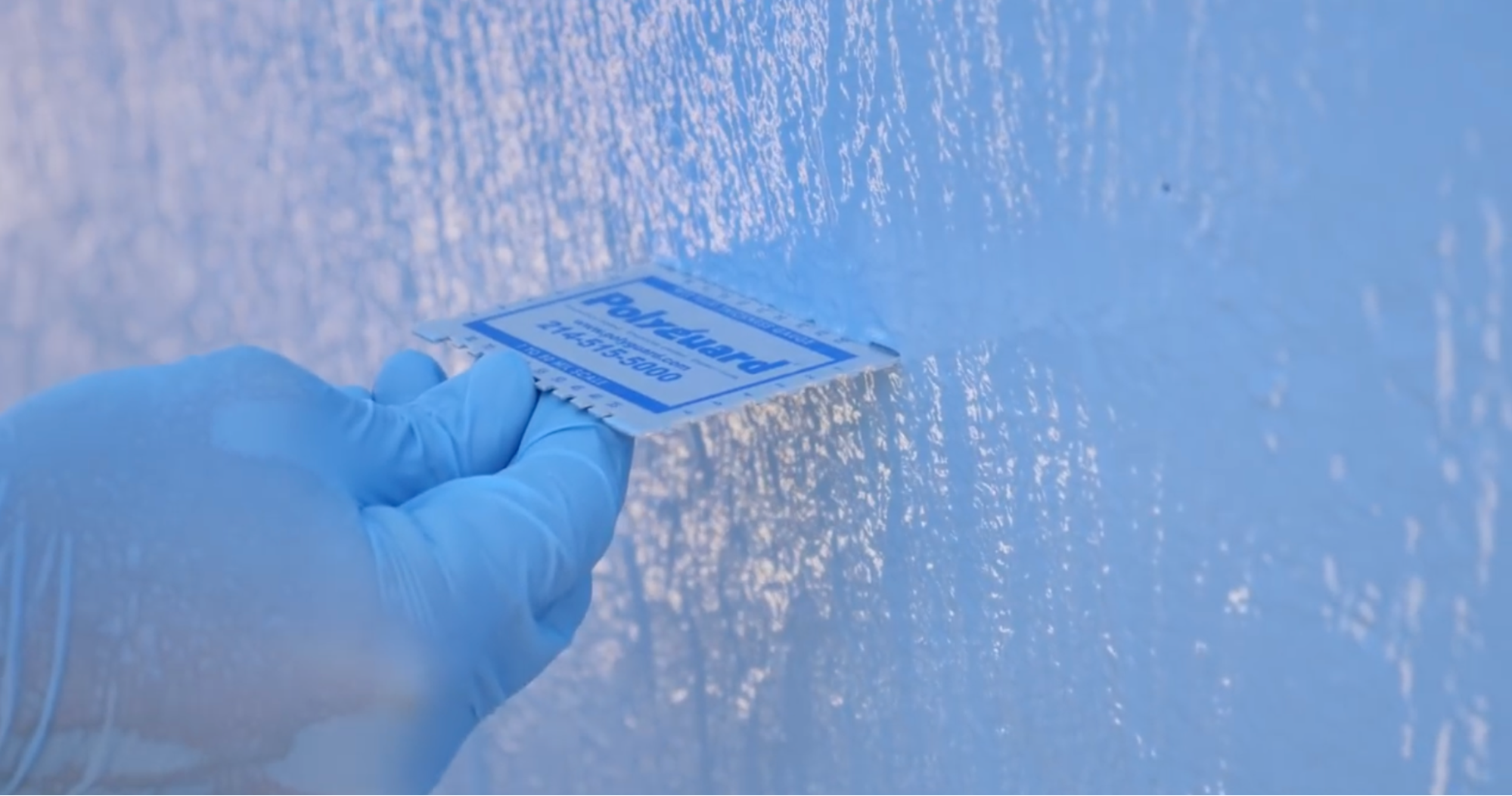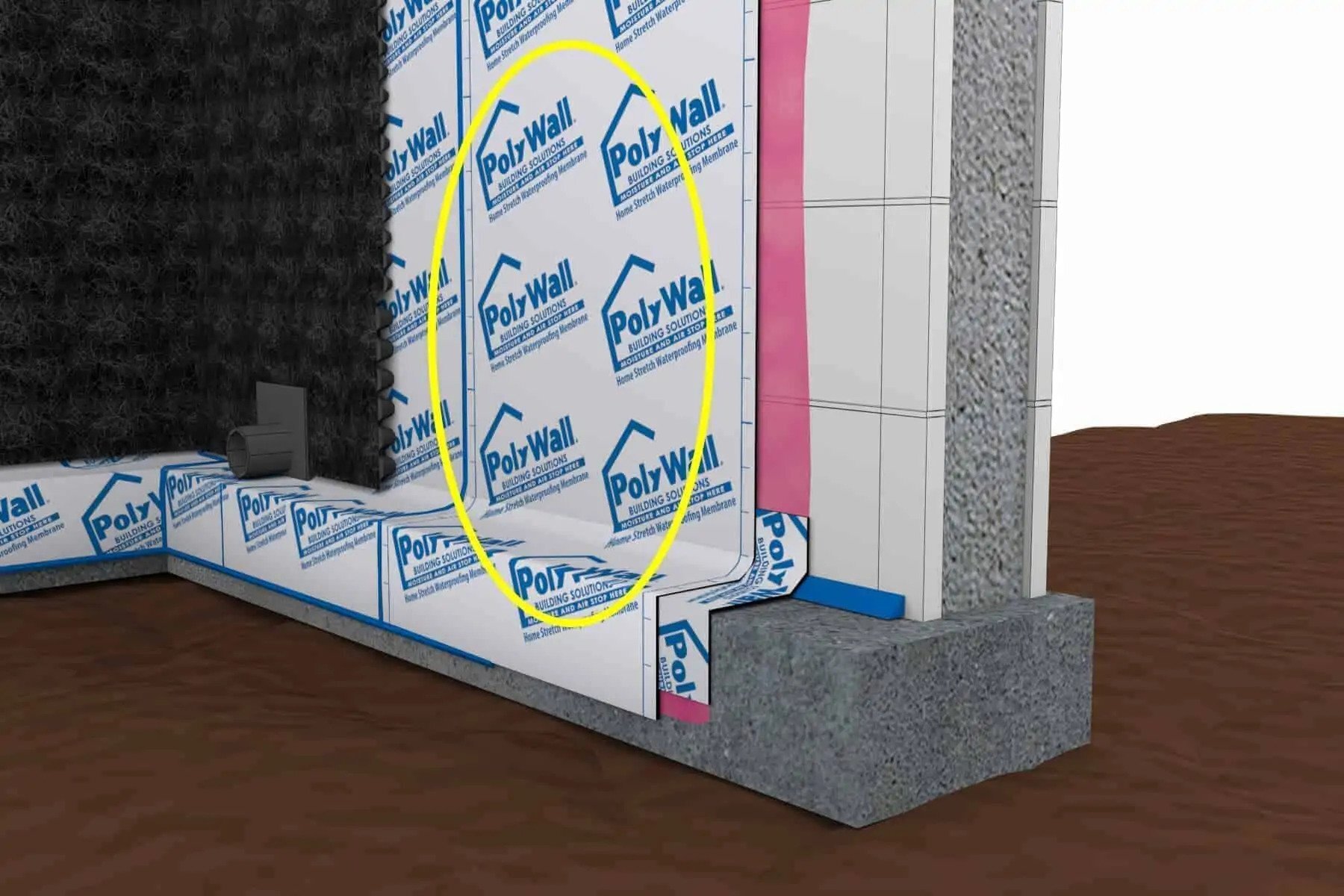The best basement wall sealer will effectively stop moisture infiltration through a concrete foundation to prevent the growth of structurally damaging and unhealthy mold, along with corrosion.
The American Society of Home Inspectors reports moisture in 60 percent of U.S. houses, with 38 percent running the risk of basement mold. Moreover, water intrusion causes 70 percent of construction litigation. However, contractors and homeowners can minimize these problems by sufficiently sealing their basement walls.
How Moisture Infiltrates Concrete
Concrete contains many tiny pores, capillary tracts, and hairline cracks that will absorb water if not treated with a quality waterproofing concrete sealer. Unfortunately, the moisture can soak into carpets and finished walls, and damage all the contents of a home. In addition, concrete basement foundations run a high risk of flooding, mildew and mold growth, corrosion, and dangerous radon gas passage.
Fortunately, PolyWall®'s basement sealing solutions (a division of Polyguard) provides superior basement sealer products that protect against air and moisture infiltrations, to significantly contribute to a home's long-term durability, health, and safety.
In addition to a basement wall sealer, you can safeguard your foundation against water infiltration by:
Pointing downspouts away from your home's base
Removing debris from your gutters to allow for proper drainage
Digging a trench away from the foundation
Installing a French drain (a ditch in the ground, inset with a layer of gravel or perforated pipe)
Avoid compromising the waterproofing system by instructing workers not to walk across exposed membranes on footing, decks, or other horizontal surfaces
How to Seal a Basement Wall
You can limit, if not prevent, basement water intrusion by waterproofing basement walls.
Protecting your home from below-grade moisture intrusion involves identifying and addressing water transport mechanisms through the basement wall and correctly applying an adequate sealer. Before applying waterproofing to the wall, always clean the wall, then seal around joints and patch imperfections in the walls with a quality product like PolyWall Blue Barrier Joint Filler 2200.

The best basement sealer protects the basement from soil and liquid moisture. To maximize protection:
Apply water sealing systems to all basement walls with usable space on one side (including crawl spaces) and earth on the other.
Extend waterproofing a minimum of 12 inches onto intersecting walls for more effectiveness.
For highly wet sites, continue the waterproofing on other walls since water may move through the keyway, along the footing, and into occupied spaces.
Tips for Sealing Walls
Clean the surface of the basement wall and footing to create a reasonably smooth surface free of loose materials.
Fill holes and cracks with a non-shrink grout or patching cement since waterproofing materials do not cover large voids.
Before applying the concrete wall waterproofing sealant or membrane, check the manufacturer's instructions for temperature limitations.
Only apply membranes on completely cured concrete since water vapor escaping from the concrete can stop the waterproofing material from bonding.
Once applied, the waterproofing system requires insulation or a drainage mat to protect it during backfill.
Tips for Sealing Old Basement Walls
The best basement waterproofing sealer will remediate and prevent water absorption through an old basement wall. Choosing a suitable basement wall sealer for old construction depends on the leak's origin: is it a vertical or horizontal crack, or is the leak coming from an expansion joint or seam? Before applying waterproofing to the wall, clean the wall (including removing paint) and patch the cracks and voids with a quality product like PolyWall Blue Barrier Joint Filler 2200.

After patching the cracks, determine the amount of moisture in the concrete wall by performing a Calcium Chloride Test to determine a concrete slab's moisture vapor emission rate (MVER).
You can use a quality penetrating concrete sealer for foundations with a moisture content of less than 4 percent based on a concrete moisture meter.
You will need a moisture vapor barrier for a foundation with a moisture content greater than 3 pounds but less than 20 pounds per 1,000 ft2 per 24 hours per ASTM F1869.
You can hire a professional basement sealing company to assess your foundation's damage, then repair and seal. However, you can also easily apply an industrial-grade waterproofing sealer, like those offered by Poly Wall® Building Solutions, which can save a tremendous amount of money.
Poly Wall® Basement Waterproofing Systems
Poly Wall® Building Solutions offer the best basement wall sealer solutions to protect against air and moisture infiltration, tremendously contributing to a home's long-term integrity, health, and safety.
Poly Wall® offers two types of basement wall sealer solutions: liquid and membrane:
Home Stretch™ Liquid Waterproofing
The design and engineering of Poly Wall® Home Stretch™ Liquid Waterproofing allows its use only on vertical foundation surfaces exposed to hydrostatic pressure, like below-grade CMU, poured concrete, and precast concrete.

For complete basement wall waterproofing, Poly Wall® advises using Home Stretch™ Liquid Waterproofing with Arroyo™ End Outlet Channel System, Blue Barrier™ Joint Filler 2200, Arroyo™ Drain Board, Arroyo™ Outlet Channel, and Arroyo™ Tee Outlet.
Home Stretch™ ICF Waterproofing Membrane
Poly Wall® engineered and designed Home Stretch™ ICF Waterproofing Membraness specifically for ICF walls (insulated concrete form). However, you can apply it to poured concrete and CMUs (concrete masonry units) foundation walls.

Easy to handle and install, Home Stretch™ ICF Waterproofing contains a 40 mils thick, self-adhering sheet waterproofing membrane made of a flexible, high-density solid polyethylene (HDPE) facing that is bonded to a rubberized asphalt waterproofing compound.
Poly Wall® advises using Home Stretch™ in combination with their Blue Barrier™ Joint Filler 2200, Detail Tape, and Water Based Liquid Adhesive to maximize the waterproofing system's effectiveness Arroyo™ Outlet Channel, Liquid Waterproofing, Arroyo™ Drain Board, and Quick Grip.
The Best Basement Wall Sealers - Poly Wall® Waterproofing Barrier Systems
Applying Poly Wall®'s below-grade waterproofing systems to basements with usable space on one side (including crawl spaces) and earth on the other side can significantly minimize structurally damaging and unhealthy moisture-related problems. Protecting your house from moisture intrusion down to its basement will help maintain the home’s integrity, reduce maintenance and repairs, and create a healthy environment.
Don't hesitate to contact the Poly Wall® professionals today for more on how to seal basement walls.
